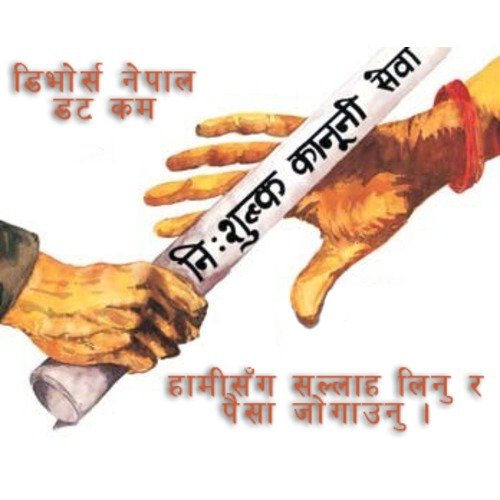Best Child Visitation Lawyers in Kathmandu
Share your needs with us, get contacted by law firms.
Free. Takes 2 min.
Free Guide to Hiring a Family Lawyer
List of the best lawyers in Kathmandu, Nepal
About Child Visitation Law in Kathmandu, Nepal
In Kathmandu, Nepal, and across the country, child visitation rights are granted with the best interest of the child in mind. These laws function under the premise that it is essential for a child to maintain a relationship with both parents, even if they're separated or divorced. Legally, the non-custodial parent is usually granted visitation rights, unless it is proved to be detrimental to the well-being of the child. However, the stipulations and details may vary, leading to complicated legal nuances.
Why You May Need a Lawyer
Child visitation rights can get complicated depending on the circumstances surrounding the separation or divorce. You may need a lawyer to help interpret, negotiate, and ensure that your rights and the child's best interests are upheld. Situations may arise where you face denial of visitation, irregularities in the visitation schedule, or if you're in a complex situation like being in a different country or facing allegations of harm to the child. In all such cases, a lawyer's guidance can be pivotal.
Local Laws Overview
Nepali Laws, based on the Children’s Act 2018, put a strong emphasis on equal parental responsibility and prioritizing child's best interests. In terms of visitation, it is typically granted unless there is substantial evidence that the child's wellbeing is compromised. However, the extent and schedule of visitation are determined by the courts based on unique family circumstances. The law doesn't specify standardised visitation rights, thus creating room for interpretation and consultation with a lawyer.
Frequently Asked Questions
What happens if the custodial parent refuses visitation?
If the custodial parent denies visitation, it can be considered a violation of the court order. At such times, the non-custodial parent can take the issue to court where legal action might be taken against the custodial parent.
Can visitation rights be modified?
Yes, visitation rights can be modified if there is a significant change in the circumstances surrounding the child's wellbeing, and if the modification is believed to be in the best interest of the child.
Can visitation rights be denied to the non-custodial parent?
While Nepal's laws try to uphold the child's right to have a relationship with both parents, in some extreme cases, if the non-custodial parent is determined to be harmful to the child, visitation rights can be denied.
Can grandparents get visitation rights?
The Nepali law does not explicitly mention the rights of grandparents but focuses broadly on the welfare of the child. So, in normal cases, they may not be granted rights. However, if they take on the legal guardianship of a child, they can avail visitation rights.
Can a minor child refuse visitation?
Minor children don't have the direct legal right to refuse visitation. However, the court may consider the preference of a child old enough to express independent thought during visitation disagreements.
Additional Resources
The Central Child Welfare Board and District Child Welfare Boards are the main bodies that oversee children's welfare, and can provide helpful advice and resources. Organizations such as Child Workers in Nepal, CWIN Nepal, and SOS Children’s Villages may also be beneficial resources to seek guidance.
Next Steps
If you require legal assistance, it is crucial to reach out to a legal professional well-versed in child visitation laws in Kathmandu, Nepal. Preparation of all relevant documents and embracing open communication with your lawyer will help improve your situation. Always remember, child welfare is the central focus, and any legal steps must be guided by their best interests.
Lawzana helps you find the best lawyers and law firms in Kathmandu through a curated and pre-screened list of qualified legal professionals. Our platform offers rankings and detailed profiles of attorneys and law firms, allowing you to compare based on practice areas, including Child Visitation, experience, and client feedback.
Each profile includes a description of the firm's areas of practice, client reviews, team members and partners, year of establishment, spoken languages, office locations, contact information, social media presence, and any published articles or resources. Most firms on our platform speak English and are experienced in both local and international legal matters.
Get a quote from top-rated law firms in Kathmandu, Nepal — quickly, securely, and without unnecessary hassle.
Disclaimer:
The information provided on this page is for general informational purposes only and does not constitute legal advice. While we strive to ensure the accuracy and relevance of the content, legal information may change over time, and interpretations of the law can vary. You should always consult with a qualified legal professional for advice specific to your situation.
We disclaim all liability for actions taken or not taken based on the content of this page. If you believe any information is incorrect or outdated, please contact us, and we will review and update it where appropriate.

















